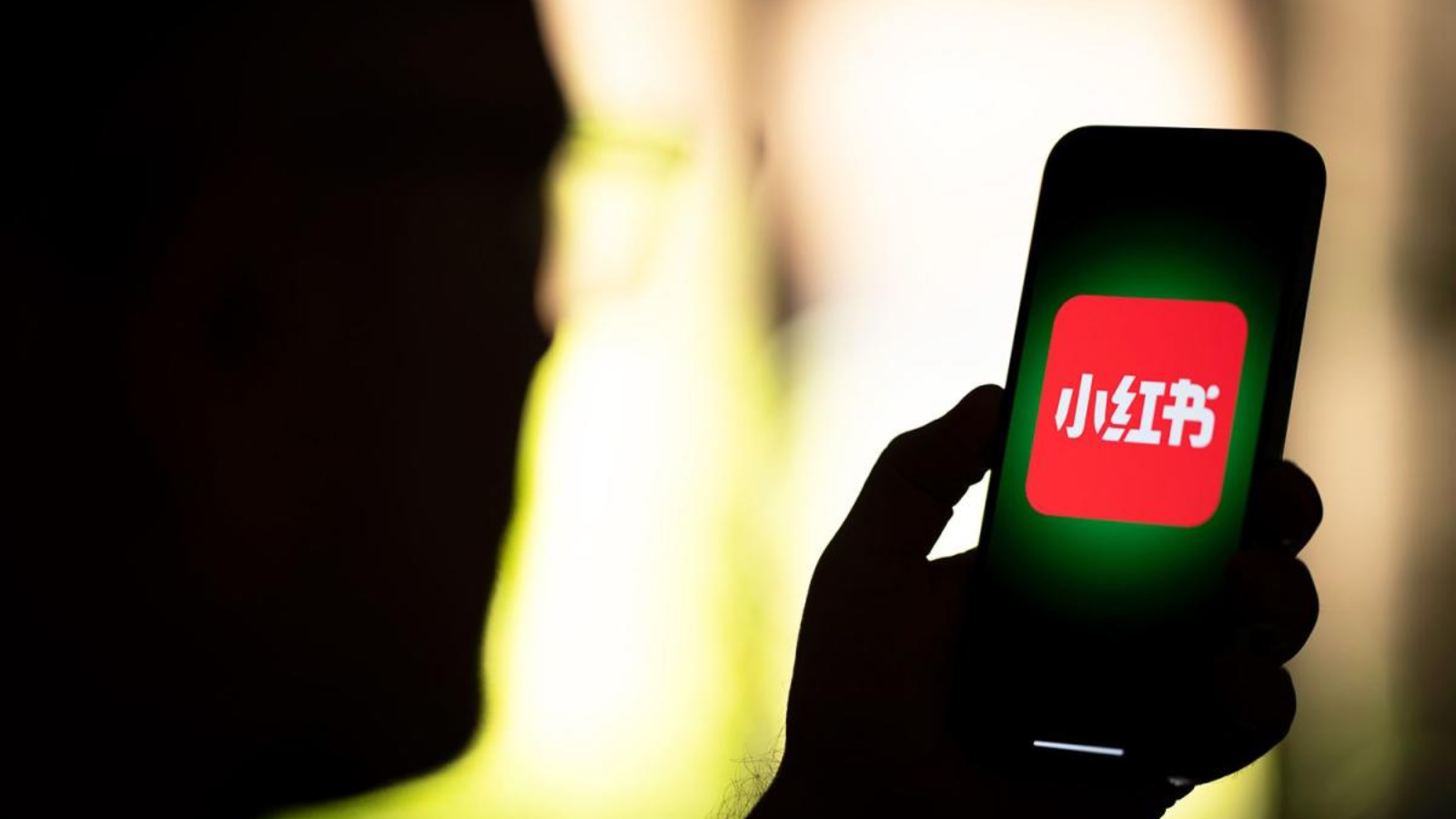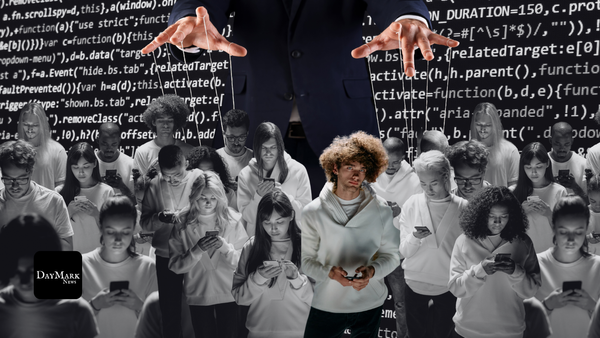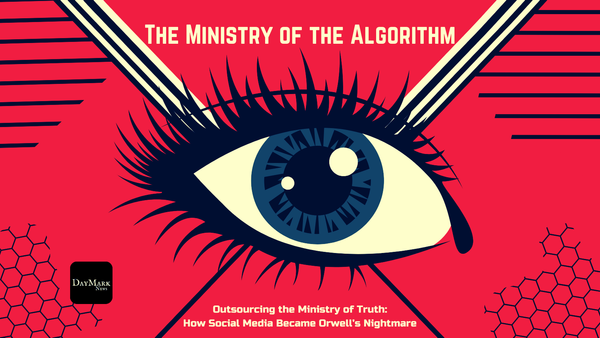U.S. Government Bans TikTok: Americans Say "Bet" and Dance Over to China's Red Note
Congress can’t agree on the price of coffee in the Capitol cafeteria, but somehow they found bipartisan harmony when it came to banning TikTok—proving that nothing unites our lawmakers like the allure of money from AIPAC and Meta.

I.V. Hill | DayMark News
When the U.S. government decided to ban TikTok, it likely didn’t anticipate the world’s most ironic game of digital musical chairs. In a bold move to protect Americans from Chinese surveillance (or so the story goes), lawmakers effectively shoved 150 million TikTokers off the platform and straight into the arms of Red Note, a Chinese-owned app that’s gone from obscurity to #1 on Google Play faster than you can say “algorithm.” The migration is swift, seamless, and ironic, considering Red Note is almost entirely in Mandarin. Yes, you read that right—millions of Americans just clicked “accept” on terms and conditions they can’t even read. If this is how we’re protecting national security, we might want to start rethinking our approach.
The TikTok ban, set to take effect January 19th, has been sold as a fight against Beijing’s data-mining ambitions. But as Senator Mitt Romney blurted out in a rare moment of unvarnished candor, it’s just as much about silencing pro-Palestinian content. TikTok has become a digital megaphone for voices challenging the status quo, and Washington doesn’t like what it’s hearing. Add to that $43,574,030 in direct donations from American Israel Public Affairs Committee (AIPAC) to Congress and the Senate in 2024 (thanks, OpenSecrets). The vote on TikTok’s fate aligned almost perfectly with which lawmakers took that cash and who didn’t. Coincidence? Please. Congress can’t agree on the price of coffee in the Capitol cafeteria, but somehow they found bipartisan harmony when it came to banning TikTok—proving that nothing unites our lawmakers like the allure of money from AIPAC and Meta.
For many, TikTok isn’t just an app; it’s a livelihood. Through the TikTok Creator Fund, thousands of influencers have turned short-form video content into full-time careers, with some earning six figures or more by entertaining, educating, and engaging audiences. From niche experts to mainstream stars, these creators have built businesses reliant on TikTok’s unique algorithm and monetization features. The impending ban doesn’t just rob them of a platform; it threatens their income and stability—another blow to the gig economy at a time when the specter of another Trump-style economic downturn looms large.
But TikTok users—clever, irreverent, and deeply unimpressed by government spin—aren’t buying it. Instead, they’re migrating en masse to Red Note. The app’s rise is both ironic and fascinating. On one hand, it’s a Chinese platform, meaning the government has accomplished precisely nothing in its quest to sever Beijing’s tech tentacles. On the other, Red Note is a cultural melting pot, with Chinese users enthusiastically welcoming their new American counterparts. Posts offering Mandarin lessons and invitations to share cultural stories abound, a far cry from the fear-mongering narratives Washington has peddled. “Welcome, friends!” reads one translated post. If this is Chinese propaganda, it’s winning hearts and minds at record speed.
@also.steph Follow me on Red Note: alsosteph ✅ Who else has already checked out Red Note? #rednote #xiaohongshu #tiktokban #tiktokus #tiktokrefugee #小红书 ♬ original sound - steph
Of course, the platform’s Mandarin-dominated interface has thrown U.S. users for a loop. But that hasn’t stopped them from diving in headfirst, clicking through terms and conditions they can’t understand in a display of optimism—or recklessness—that feels uniquely American. And who could blame them? TikTok’s users know how to adapt. These are the same people who RSVP’d en masse to Donald Trump’s Tulsa rally in 2020 just to leave it half-empty. If they could troll a former president, they can handle a few language barriers.
Not everyone is thrilled about this migration, though. Mark Zuckerberg, for one, is having a very bad year. After trying and failing to replicate TikTok’s magic with Instagram Reels, Zuckerberg has emerged as one of the loudest cheerleaders for the ban. His motives are as transparent as a Reels filter: TikTok’s CEO, Shou Zi Chew, is a former Facebook intern, and his app has been thrashing Meta’s platforms in the one arena Zuckerberg can’t afford to lose—user engagement. The result? Meta Exodus Day. January 19th isn’t just the day TikTok goes dark; it’s the day TikTokers delete every Meta app from their devices. Viral instructional videos on how to cut ties with Zuckerberg are sweeping through the For You Page, and the goal is clear: hurt him where it counts—his Forbes 400 ranking.
@davidjschroer Them are rookie numbers we can do better, what do you say TikTok!? Hit them where it hurts. Their wallets. #tiktok #tiktokban #ban #meta #zuckerberg #revolution ♬ original sound - David Schroer
And then there’s the hypocrisy of the ban itself. If TikTok’s data practices are the problem, why isn’t Washington looking at Silicon Valley? Facebook, Google, and Amazon have been mining our personal information for years, and the receipts are endless. Frances Haugen’s whistleblower revelations about Facebook’s algorithmic rabbit holes still haunt the tech landscape, and yet, Meta is somehow allowed to position itself as a patriot in the TikTok fight. If this were a Hollywood script, even the most gullible audience wouldn’t buy it.
The TikTok ban also underscores a broader, more troubling trend. By banning an app that empowered marginalized voices and democratized activism, the U.S. risks eroding its own principles. It’s a dangerous precedent, one that hints at a government increasingly eager to control not just data, but dialogue. And in doing so, it’s driving innovation—and influence—straight into China’s hands. Red Note’s meteoric rise isn’t just an alternative; it’s a statement. Americans are not just migrating—they’re thriving, learning Mandarin, and connecting across cultural divides. The U.S. government may have hoped to stifle free expression, but instead, it’s sparked a digital renaissance.

As January 19th approaches, one thing is clear: TikTok’s users aren’t going quietly. They’re moving, organizing, and reinventing the way we engage with social media. And while Washington congratulates itself for taking a stand, Americans are proving, yet again, that creativity and resilience can outpace even the most heavy-handed policies. Whether it’s on TikTok, Red Note, or the next big platform, they’ll keep dancing, meme-ing, and holding power to account. And if Mark Zuckerberg is smart, he’ll sit this one out. After all, the last thing he needs is another app to fail at copying.
This article is licensed under Creative Commons (CC BY-NC-ND 4.0), and you are free to share and republish under the terms of the license.
At DayMark News, we are committed to exposing the rise of authoritarianism and its threat to democracy. In a time when disinformation spreads like wildfire and democratic institutions face relentless attacks, we need your support to keep the fight alive.
Investigative journalism is our weapon against authoritarian ideologies. We delve deep to uncover the truths others would rather keep hidden, while providing actionable resources to empower individuals like you to defend our democracy.
We believe in transparency, integrity, and the power of a well-informed public. But maintaining a platform dedicated to fearless reporting and mobilization requires resources. We refuse to bow to corporate interests or compromise our mission. That's why we turn to you — our community.
Every donation, big or small, helps us continue our work. With your support, we can produce the in-depth analyses, breaking news, and educational tools needed to resist the rise of extremist movements and protect democratic values for future generations.
This fight belongs to all of us. Together, we can ensure that democracy not only survives but thrives. Please consider making a contribution today to keep DayMark News strong and independent.
Donate Now: Because Democracy Can't Defend Itself.

 Donate
Donate



